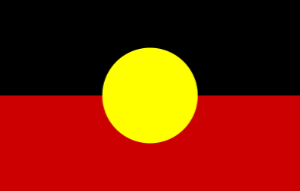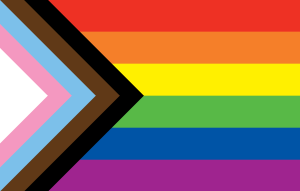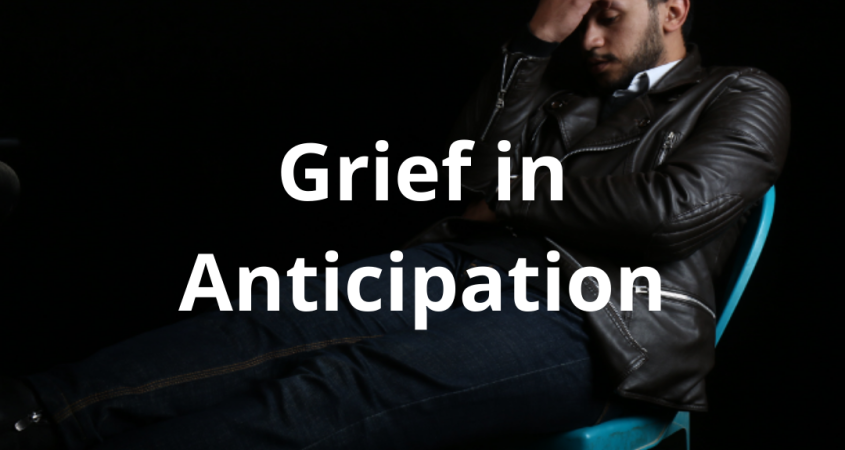Grief in Anticipation
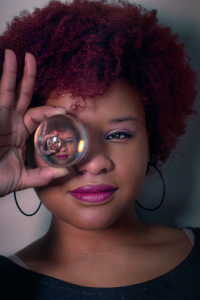 According to the dictionary, the word ‘anticipate’ means to foresee, foretell, have advanced knowledge of, or look forward to a future event. Great if the foreseen event is positive, but if not, what is foreseen can almost paralyse us with fear. For example, diagnosis of a terminal illness, for us, or for someone we love, can temporarily shake us to our foundations, but, with understanding, practical help and compassionate support, most of us eventually learn how to live with our changed reality.
According to the dictionary, the word ‘anticipate’ means to foresee, foretell, have advanced knowledge of, or look forward to a future event. Great if the foreseen event is positive, but if not, what is foreseen can almost paralyse us with fear. For example, diagnosis of a terminal illness, for us, or for someone we love, can temporarily shake us to our foundations, but, with understanding, practical help and compassionate support, most of us eventually learn how to live with our changed reality.
The term ‘anticipatory grief’ appears regularly in most literature about dying, death and bereavement. In the past, in most cultures, truth telling about a terminal diagnosis was frequently avoided in the belief that the shock of hearing unwelcome news would destroy hope and hasten death. In more recent times this practise has been challenged and in many countries replaced with the belief that the patient has a right to know their diagnosis and prognosis.
Foreknowledge can be a good thing, providing us with an opportunity to process confronting information, then recover sufficiently from the initial shock to ‘put our affairs in order’.
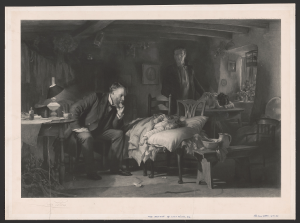 In the neat, tidy version of this theory, we, as the recipient of the diagnosis, would make a will, then complete all unfinished business, both practical and emotional. We would repay debts, tell family and friends what meaning they have had in our lives, what we appreciate and value, what we regret or wish we’d done differently, and above all, express our love.
In the neat, tidy version of this theory, we, as the recipient of the diagnosis, would make a will, then complete all unfinished business, both practical and emotional. We would repay debts, tell family and friends what meaning they have had in our lives, what we appreciate and value, what we regret or wish we’d done differently, and above all, express our love.
With nothing to lose, some of us might even disinhibit enough to express some of our hidden truths. We may lighten our emotional baggage by unpacking and expressing to those involved how they’ve hurt or disappointed us, or simply express the less sanitised version of our views about politics, religion, or life in general.
 As relatives and friends of the dying person, their diagnosis and prognosis may have left us too, reeling from shock, and temporarily immobilised by anxiety. How can we go on without the physical presence of this loved person in our lives? We may initially refuse to believe what we are hearing, but, in the ideal version of this opportunity to face the foretold bleakness of our future, we will dutifully process our reactions so that we can focus on providing the best possible care for someone important to us.
As relatives and friends of the dying person, their diagnosis and prognosis may have left us too, reeling from shock, and temporarily immobilised by anxiety. How can we go on without the physical presence of this loved person in our lives? We may initially refuse to believe what we are hearing, but, in the ideal version of this opportunity to face the foretold bleakness of our future, we will dutifully process our reactions so that we can focus on providing the best possible care for someone important to us.
As witnesses to the pain and suffering of the person we love, to their physical and emotional changes, to their decreasing ability to participate in family and social life, we will experience grief every day, but hopefully in manageable ‘doses’. We will begin to ‘take up the slack’ – to rehearse taking on the roles they are no longer able to fulfil. And when they eventually die, some of the literature seemed to suggest that our grief would be less painful either because it had become familiar, or because we’d used up our grief ‘quotient’.
If only life was like that.
But, no matter how much forewarning we’ve been given, most deaths are experienced by bereaved folk as sudden. And, depending on how long it took the person we love to die, and how we paced ourselves in the caring role, by the time they take their last breath we may be so utterly exhausted that our first reaction might be one of relief. We may feel as if we need to sleep for a month, and have someone care for us before we can find the energy to grieve. Once we’ve recovered just a little of our stamina, grief tends to hit with surprising force, like a draught horse kicking us in the gut. So much for ‘anticipation’ using up our grief ‘quotient’!
Forewarning, foreknowledge, and foresight can be both positive and negative. Let’s examine both.
Some potential negative aspects of foreknowledge and forewarning
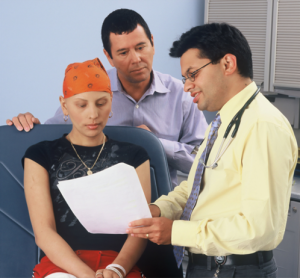 I think it’s often the manner in which a forewarning is delivered that can cause unnecessary distress, or perhaps the timing. Sometimes it’s the person who delivers the information, the personality and current circumstances of the person who receives it, and probably, the intent of the message.
I think it’s often the manner in which a forewarning is delivered that can cause unnecessary distress, or perhaps the timing. Sometimes it’s the person who delivers the information, the personality and current circumstances of the person who receives it, and probably, the intent of the message.
Some folk like to live in ‘blissful ignorance’ and develop creative repertoires for avoiding or deflecting unwanted information. Others, like me, prefer to know the truth. However, if ‘truth’ is delivered by someone who wishes to cause hurt, or does so in a manner that is devoid of compassion, most of us will try to shield ourselves from the full impact of the information.
When foreknowledge or forewarning deprive us of hope, most of us are likely to feel devastated. We need to cling to that important life raft. However, if the people delivering distressing information, and those in our support circle allow us to react to painful news in whatever way is right for us, they may then be able to help us ‘shift our hope goal posts’. For example, hope of living to 150 years of age and receiving a letter from King George, may be replaced by ‘I hope I can fulfil some of the things on my bucket list; or, I hope the quality of my remaining life will be good; or perhaps, I hope I can create some good memories for those I love to draw on after I’m gone; or, finally, I hope I can die pain free, and with dignity.’
The potential positive aspects of foreknowledge
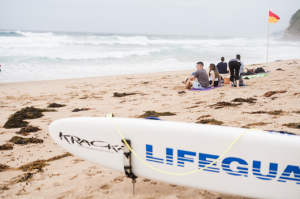 Using foreknowledge to our advantage is part of our everyday life – a necessary survival strategy. We know that if we put our hand in the fire or on the hot plate we’ll burn; if we cross the road without looking both ways we may be killed; if we swim outside the flags or at an unpatrolled beach we may drown; if we continue to play golf once a storm threatens we may be struck by lightening; if we swim in the ocean at dusk we may be taken by a shark; if we smoke, we might die of lung or other cancers; and the list goes on, and on.
Using foreknowledge to our advantage is part of our everyday life – a necessary survival strategy. We know that if we put our hand in the fire or on the hot plate we’ll burn; if we cross the road without looking both ways we may be killed; if we swim outside the flags or at an unpatrolled beach we may drown; if we continue to play golf once a storm threatens we may be struck by lightening; if we swim in the ocean at dusk we may be taken by a shark; if we smoke, we might die of lung or other cancers; and the list goes on, and on.
Sports coaches encourage their protégées to use foreknowledge of their opponent’s style, moves, physical and psychological strengths and weaknesses to plan their own strategies on the court, the playing field, the pool, the golf course and so on. Winning isn’t just about brute strength, stamina or fitness, it’s also about thinking, using intelligence and knowledge to ‘gain the upper hand’. Skilled sportsmen, women and children do this well.
If we have foreknowledge of an approaching flood, fire, cyclone, earthquake, volcanic eruption, pandemic and so on, we can carry out preparations that may save lives, jobs and property. What seems to ‘come from left field’ and takes us by surprise can render us vulnerable, helpless and overwhelmed, so in many situations we have a lot to gain from having knowledge in advance of a potentially threatening and disempowering event.
The current Covid-19 situation is a good example. Politicians and health care providers from around the world have expressed anger, frustration and disappointment about what they perceive as a lack of forewarning about the pandemic that has irrevocably changed our lives. ‘If only we’d been told earlier we would have been better prepared and been able to save lives and jobs and ensure economic stability.’ This may be true to some extent, but would we really have prepared differently? We tend to use foreknowledge when it’s convenient and fits with our belief system and lifestyle, and discard ‘inconvenient truths’.
In fact, epidemiologists, virologists, and other scientists, have forewarned politicians about the threat of a pandemic for eons. Have they used that foreknowledge to advantage? It appears not. In fact, they appear to have used the information in much the same way as the rest of us use knowledge about smoking, excessive drinking, illicit drugs, unhealthy eating, lack of exercise, safe sex, sun baking, and immunisation, to name just a few of the life issues about which we have foreknowledge, and forewarning about potential consequences.
The aspect of life about which we all have forewarning is death. If, as children, we were fortunate enough to have had parents who talked about death as naturally as they talked about every other aspect of life, or read us books like Lifetimes, The Fall of Freddy The Leaf, When Dinosaur’s Die, and other books about living and dying, we will have had invaluable foreknowledge about the end of life. We know at some level, whether just intellectually or to our core, that we will all inevitably die. Have we used this knowledge well? Many people haven’t.
What stops us?
Denial and Avoidance
 Most of us find ways to defend ourselves from an enemy, particularly if the enemy is simply ‘an inconvenient truth’, and our defences are often creative and almost limitless.
Most of us find ways to defend ourselves from an enemy, particularly if the enemy is simply ‘an inconvenient truth’, and our defences are often creative and almost limitless.
We may simply avoid reading or listening to information we don’t want to know about. We can discredit the source of the information, pose alternative interpretations, make jokes, indulge in conspiracy theories, shrug our shoulders and adopt an ‘oh well’ attitude. We may act tough and decide that scare tactics are wasted on us, or simply convince ourselves that any potential negative, predicted event or outcome won’t happen in our lifetime.
Death is a little different to other unpalatable truths. It happens, whatever we hope or believe.
For the majority of us, death is a word, an intellectual concept, until we are confronted by stark reality. We convince ourselves, while paying lip service to the opposite, that death is what happens to old people, other people, people who don’t live the way we live, or people in other countries. We indulge ourselves with magic thinking, believing that we can postpone our death, or avoid it altogether if we do, and believe, all the right things.
Conversations about death, conversations that could be therapeutic, tend to be avoided because the topic is considered morbid, and we don’t want to contaminate our magic cloak of positive thinking. We don’t make a will because that might tempt fate and hasten the date of our death. But, no matter what we do, how we think, or how we live, death will eventually be part of our lives. Pets will die; family members will die; friends and colleagues will die; famous people will die; fires, floods, famine, earthquakes, volcanic eruptions, cyclones, lightening strikes, accidents, illness, wars, and pandemics will continue to create devastation and the pain of grief.
We know all of this is going to happen.
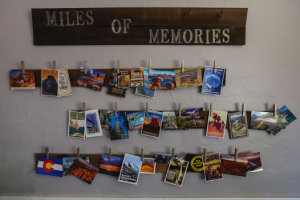
If we used our foreknowledge wisely, we might create more special moments in each day, make invaluable memories, mend broken relationships, listen more carefully to the needs of others, share our thoughts and feelings more openly with folk important to us, become more of ourselves, and be more creative.
Knowledge about death, real knowledge, the kind that penetrates to our ‘core’, can be empowering and liberating. It can stimulate us to live life to the full. Life is a precious gift – let’s use it well by creating special moments every single day. It only takes a moment to send a text message, write a brief email of appreciation, to say ‘I love you’, ‘I care’, ‘you’re important to me’, ‘I love the way you…’
And if anyone reading this Blog appreciates the way counsellors at ‘A Friend’s Place’ have continued to provide loving, compassionate and creative care during this Covid-19 time of social distancing, it will only take you a moment to tell them. Appreciation helps to keep their compassion ‘tanks’ full, as it does for all of us.
Help
Help is always available – at ‘A Friend’s Place’ or by contacting our outreach service.
Dianne McKissock OAM
NCCG Outreach Support Service
Email support for dying and bereaved people and anyone involved in their care
